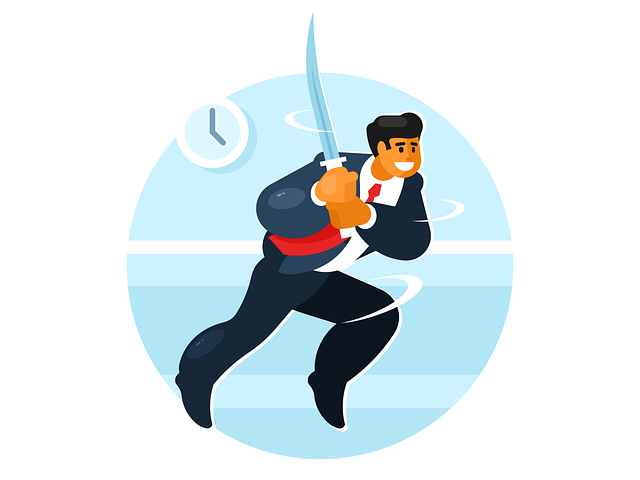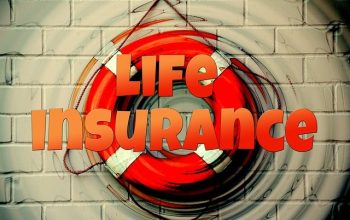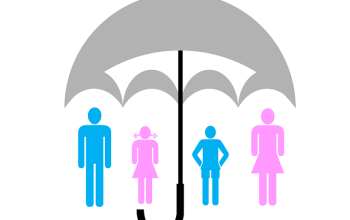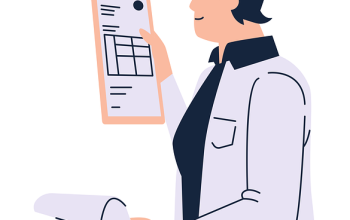General Liability Insurance is a fundamental component of a comprehensive small business insurance strategy, safeguarding against third-party claims involving bodily injury, property damage, and personal or advertising injuries. Professional Liability Insurance, known as Errors & Omissions insurance, protects service professionals from allegations of negligence or professional errors. Public Liability Insurance covers public-facing businesses for incidents causing third-party injury or damage. Small Business Insurance often includes these coverages, addressing the broad range of liabilities businesses face, including those related to products through Product Liability Insurance. Commercial Liability Insurance encapsulates Business Liability Coverage and provides a robust financial defense against a wide array of risks within commercial operations. This insurance package is crucial for maintaining both financial health and client trust, ensuring that businesses can navigate industry-specific challenges without undue risk. Investing in these policies is key for small business owners who wish to protect their assets, manage risks effectively, and uphold the integrity of their services or products.
When safeguarding personal assets and securing financial stability against unforeseen events, understanding the nuances of insurance coverage is paramount. This article delves into the critical aspect of Personal Liability Coverage within General Liability Insurance policies, shedding light on how it shields individuals from potential legal claims arising from property damage or bodily injury. We will explore the multifaceted nature of liability insurance, including its role in Professional Liability Insurance for both individual professionals and small businesses. Additionally, we will compare Business Liability Coverage with Public Liability Insurance to clarify the distinctions between the two. For those operating in product-centric markets, the complexities of navigating Product Liability Insurance are examined, emphasizing its significance in safeguarding against manufacturing risks. Finally, we discuss the importance of Commercial Liability Insurance for business owners looking to extend their coverage comprehensively. Understanding these different types of insurance ensures that whether you’re an individual or a small business owner, you’re prepared and protected.
- Understanding Personal Liability Coverage within General Liability Insurance
- The Role of Professional Liability Insurance for Individuals and Small Businesses
- Comprehensive Protection: Business Liability Coverage vs. Public Liability Insurance
- Navigating Product Liability Insurance: Safeguarding Your Business from Manufacturing Risks
- Extending Coverage: The Importance of Commercial Liability Insurance for Business Owners
Understanding Personal Liability Coverage within General Liability Insurance
Personal Liability Coverage is a critical component within General Liability Insurance that safeguards individuals and businesses from financial distress due to legal claims arising from bodily injury, property damage, or personal injury such as slander or libel. This coverage is not limited to personal contexts; it extends to various forms of liability insurance including Professional Liability Insurance, Business Liability Coverage, Public Liability Insurance, and Product Liability Insurance. For small business owners, this aspect of General Liability Insurance is particularly vital, as it can protect against claims related to the operations of their businesses. It covers a wide range of scenarios where your actions or those of your employees could lead to third-party claims, ensuring that you are not solely responsible for medical costs, legal fees, or settlements.
In the realm of Commercial Liability Insurance, Personal Liability Coverage plays an equally significant role. It is designed to shield businesses from the risks associated with everyday operations where harm or damage occurs unintentionally. This includes incidents at your business location or when you are conducting business elsewhere. For instance, if a customer slips and falls on your commercial premises, this coverage can help cover the costs of their medical expenses and any legal defense fees should they sue for damages. Similarly, if your product causes harm to a consumer after it leaves your company, Product Liability Insurance, a subset of Commercial Liability Insurance, would typically respond to cover the associated liabilities, thus providing a comprehensive safety net that helps maintain both financial stability and peace of mind for businesses of all sizes.
The Role of Professional Liability Insurance for Individuals and Small Businesses
General Liability Insurance serves as a safeguard for individuals and small businesses against claims of third-party bodily injury, property damage, and personal and advertising injury. This type of coverage is often included under the umbrella of Business Liability Coverage, which is essential for protecting both your business operations and personal assets from financial strain due to such claims. For instance, if a customer slips and falls on a wet floor in your store, General Liability Insurance can help cover the medical costs, legal fees, and potential settlements, thus mitigating the impact on your finances.
Similarly, Professional Liability Insurance, also known as Errors and Omissions (E&O) insurance, is tailored for professionals who provide advice, services, or design as part of their work. It protects against claims alleging negligence, errors, or omissions in professional duties, which can be particularly relevant for medical practitioners, lawyers, architects, and consultants. Additionally, Product Liability Insurance within Commercial Liability Insurance ensures that small businesses are not financially crippled by the cost of defending against and settling claims related to product defects or malfunctions. Public Liability Insurance, on the other hand, is designed for businesses that interact with the public and can cover incidents like an employee accidentally damaging a client’s property during a service call. In all these scenarios, the role of these liability insurances is to provide financial security and peace of mind, allowing individuals and small businesses to operate without the constant fear of a single lawsuit depleting their resources or halting their operations.
Comprehensive Protection: Business Liability Coverage vs. Public Liability Insurance
When considering the spectrum of liability insurance options available to both individuals and businesses, it’s essential to understand the distinctions between Business Liability Coverage and Public Liability Insurance. General Liability Insurance serves as a foundational component for Small Business Insurance policies, offering comprehensive protection against a wide array of claims arising from third-party bodily injury, property damage, and personal and advertising injury. This coverage is not limited to the confines of a business premise; it extends to situations where a business owner or employee causes harm while performing work off-site, such as during a meeting at a client’s office or an installation at a customer’s home.
In contrast, Public Liability Insurance is specifically tailored for situations where the liability risk originates from interactions with the public. This type of coverage is critical for businesses that operate in locations frequented by the general public, like retail stores, event organizers, or service providers who visit clients at their homes. It safeguards against the financial repercussions of incidents like slips and falls on premises owned or operated by the insured, as well as damage caused to third-party property during business operations. Additionally, Professional Liability Insurance (Errors & Omissions Liability Insurance) is designed to protect professionals and service providers from claims related to their professional advice or services, which could lead to financial loss if those services do not meet the expected standard of care. Both Business Liability Coverage and Public Liability Insurance are integral parts of Commercial Liability Insurance, ensuring that businesses are prepared for a variety of liability scenarios, thereby safeguarding their assets and longevity in an ever-changing business landscape. Product Liability Insurance further extends this protection to cover claims resulting from products that a company designs, manufactures, or sells, which may malfunction or cause injury after purchase. With the right liability insurance in place, businesses can operate with confidence, knowing they have robust financial protection against unforeseen legal actions.
Navigating Product Liability Insurance: Safeguarding Your Business from Manufacturing Risks
navigating the complexities of product liability insurance is a critical aspect for businesses that manufacture, distribute, or sell products. General Liability Insurance plays a pivotal role in this context by offering protection against claims arising from third-party bodily injury or property damage. For instance, if a component of your product fails and causes harm to a user, general liability insurance can help cover the cost of legal defense and any compensation that may be awarded to the injured party. Additionally, it’s important for businesses to consider Professional Liability Insurance, also known as Errors and Omissions (E&O) insurance, which specifically addresses claims related to professional services or advice provided by a business that leads to a financial loss.
Expanding beyond the basics of general liability, businesses must also look into Product Liability Insurance within the realm of small business insurance. This type of coverage is tailored to safeguard against claims where a product causes damage or injury due to design defects, manufacturing errors, or inadequate warnings about product use. It’s essential for companies, especially those dealing with high-risk products, to secure Product Liability Insurance as part of their commercial liability insurance portfolio. This ensures that they are not held personally responsible for the costs associated with such claims, which can be substantial and potentially threaten the financial stability of the business. Public Liability Insurance, another component of comprehensive small business insurance, complements these coverages by providing protection against liability from incidents involving the public, such as slips and falls on company premises or at a trade show. By integrating these liability insurance types into a robust small business insurance strategy, businesses can operate with greater confidence, knowing they are shielded from a wide array of manufacturing risks.
Extending Coverage: The Importance of Commercial Liability Insurance for Business Owners
For business owners, extending the scope of coverage beyond personal liability to include General Liability Insurance is pivotal. This type of insurance safeguards against third-party claims arising from bodily injury or property damage that occurs as a result of business operations. It is not just about protecting physical assets; it’s about ensuring the continuity and integrity of your business. Accidents happen, and when they do, they can lead to costly legal battles and settlements. General Liability Insurance acts as a financial buffer, covering legal defense fees, compensation costs, and associated medical expenses should someone be injured on your premises or by your product.
Expanding this protective umbrella further, Professional Liability Insurance, also known as Errors and Omissions (E&O) insurance, is essential for service-oriented businesses. It provides coverage against claims of negligence or harm due to professional advice or services that did not meet the expected or agreed-upon standards. Additionally, Public Liability Insurance extends protection to scenarios where your business interacts with the public, offering a safeguard against liability for accidental injury or damage to third parties or their property.
Small Business Insurance packages often include Business Liability Coverage, which is tailored to address the diverse risks associated with different industries. Product Liability Insurance specifically addresses claims related to defective products, ensuring that your business can recover from unforeseen events like recalls or lawsuits without jeopardizing its financial stability. Lastly, understanding the nuances of Commercial Liability Insurance is crucial for any business owner; it encompasses a range of coverages designed to address the unique risks each enterprise faces. Investing in these policies not only protects your assets but also instills confidence in clients and stakeholders, showcasing a commitment to operational excellence and risk management.
In conclusion, understanding and securing the right liability coverage is a prudent step for both personal and professional endeavors. General Liability Insurance serves as the foundation, with Professional Liability Insurance safeguarding professionals and small businesses from claims related to their expertise. Businesses, in particular, must carefully consider their needs, whether it be Public Liability Insurance for incidents involving third parties or Product Liability Insurance to address risks inherent in the manufacturing process. For comprehensive protection, Commercial Liability Insurance stands out as an essential component for business owners, ensuring that they are not personally liable for business-related claims. By integrating these types of coverage, individuals and small businesses can mitigate potential financial ruin and operate with greater confidence and security. Thus, embracing a robust liability insurance policy is not just about legal protection; it’s an investment in the stability and success of your ventures.



